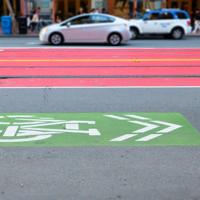Welcome to Bikelanes.com, where we dive deep into the world of bicycle commuting and the urban cycling lifestyle. Today, we’ll explore electric bikes, a subject that stirs much interest and curiosity among commuters. While they’ve gained popularity over the years, it’s worthwhile to weigh the pros and cons thoughtfully. Let’s discuss the nuances of electric bikes and how they might— or might not— fit into your daily routine.
Pros of Electric Bikes
1. Ease of Commuting
Electric bikes provide a boost in power, making it easier to navigate through the city. Whether you’re climbing steep hills or covering long distances, the electric assist can reduce the effort needed. This feature is beneficial for those with long work commutes or those not wanting to arrive at their destination hot and sweaty.
2. Environmentally Friendly
Compared to cars, electric bikes are more environmentally friendly. They produce little to no emissions, which can be a small but pivotal step in reducing one’s carbon footprint. While the environmental impact of battery production is a consideration, many find electric bikes to be a more sustainable option overall.
3. Cost-Efficiency
Over time, electric bikes can present a cost-effective alternative to public transport or driving. Initial investments can be offset by savings on fuel, parking, and maintenance. Moreover, many cities offer incentives for using electric vehicles, which can further reduce expenses.
4. Health Benefits
While electric bikes require less physical effort than traditional bikes, they still encourage activity. Riders can choose the level of assistance they need, balancing between getting exercise and accessing convenience. A study referenced by Cycling Weekly highlights how e-bike users tend to ride more frequently, which supports physical fitness over time.
5. Accessibility
For people who might struggle with a conventional bike due to age, health issues, or lack of fitness, electric bikes can make cycling accessible. The option of choosing assistance levels allows for a variety of fitness levels and cycling aptitudes.
Cons of Electric Bikes
1. Higher Initial Cost
Electric bikes tend to have a higher initial cost compared to traditional bicycles. This barrier can be significant for some, especially when quality and durability are a priority. While prices have come down in recent years, budget considerations are important.
2. Maintenance and Repair
With more components, like batteries and electric motors, maintenance can be more complex. Finding skilled repair services might be more challenging, and costs can add up. The longevity of an electric bike often depends on proper care and routine check-ups.
3. Weight and Portability
Electric bikes are generally heavier due to battery packs and motors. This can make them less convenient to carry, whether up stairs or onto public transport. It’s something to consider if your commute involves segments without opportunities to ride.
4. Battery Limitations
Battery life and range limitations can be a concern. Factors like terrain, rider weight, and level of assist can impact the distance an electric bike can travel on a single charge. Planning rides to ensure access to charging facilities can sometimes be necessary.
5. Dependency on Technology
While technology can be an enabler, it also introduces dependency. Issues with electric components can neutralize the primary benefits users seek from an e-bike. Learning how to troubleshoot common issues can mitigate this, but it’s an aspect to be mindful of.
Conclusion
Electric bikes can play an interesting role in one’s commuting experience. They offer a balance of convenience and exercise, though they come with unique considerations. Reflecting on both the advantages and limitations is key before deciding if an electric bike fits your lifestyle.
Ultimately, the decision to integrate an electric bike into your life is personal. It’s about finding what works best for you amidst the swirl of urban life. Consider getting hands-on with a test ride to see how it feels. Engage with local communities or forums for shared experiences. Together, we can navigate the evolving landscape of urban cycling.




